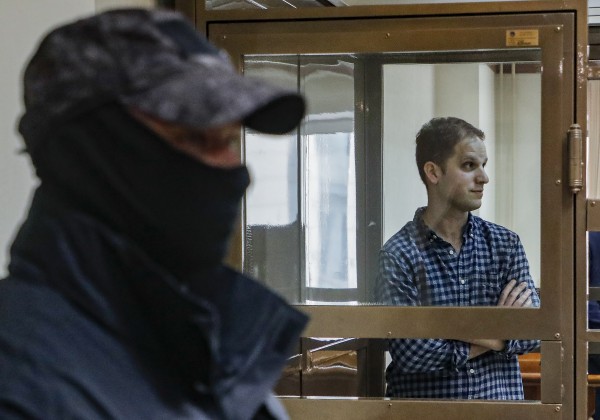IPI Director Alison Bethel McKenzie and IPI Press Freedom Manager Anthony Mills on Friday wrapped up an IPI emergency visit to IPI’s Turkish National Committee in Istanbul, following the recent wave of arrests of Turkish journalists, including IPI World Press Freedom Hero Nedim Şener.
Those recently arrested join dozens of other journalists in prison in Turkey. Şener and others have been accused of involvement in an alleged plot by secular ultra-nationalists to overthrow the Turkish government. The plot, dubbed Ergenekon, also allegedly involves senior Turkish armed forces officials.
Despite repeated waves of arrests, however, no hard evidence of the plot has been made public, and there is concern that many journalists may have been arrested because of their work, rather than any criminal activity.
The investigations are being conducted amid the utmost secrecy. Neither Şener nor his lawyers, though recently made aware that Şener is accused of belonging to an armed terrorist organisation seeking to overthrow the government, have been informed of the evidence held against him.
Şener, who was arrested almost two weeks ago in front of his wife and 8-year-old daughter, faces a lengthy stay in prison before his case even comes to trial.
At a press conference held last Thursday together with its Turkish National Committee, headed by IPI board member and senior Hurriyet newspaper columnist Ferai Tinç, and the head of the Turkish Journalists’ Association, IPI Director Bethel McKenzie expressed serious concern about the plight of Şener and the dozens of other journalists currently in prison in Turkey, clearly stating that no journalist anywhere should be imprisoned because of his or her work.
In addition to IPI, other press freedom organisations, as well as the European Commission, OSCE, UN High Commission for Human Rights and the U.S. ambassador to Turkey have all expressed strong concern at the journalists arrests as well as aspects of the Turkish Penal Code, under which many of the detained journalists are being held.
In the last week, thousands of journalists have gathered for two separate rallies – one in Istanbul, the other in Ankara – to protest the declining press freedom environment in Turkey.
In a meeting with IPI Press Freedom Manager Mills in Turkey’s capital of Ankara last Friday, the head of the Turkish Foreign Ministry’s Human Rights Commission, Ali Onaner, said he understood that the “perception” from within the European Union was one of concern, fuelled by the secrecy shrouding the arrests. However, he added that according to the country’s judiciary, the journalists had been arrested not because of their work, but because of their alleged involvement in terrorist activities. Asked about the decision of the judiciary not to provide the journalists and their lawyers with any evidence, nor to outline the explicit nature of the charges against them, he said it would be improper for the government to seek to influence judicial proceedings and suggested that some investigations were so “sensitive” that they had to be dealt with in a secretive manner.
Currently, there are 68 journalists in prison, mainly on charges of terrorism. It is the largest number of imprisoned journalists in Europe and among the largest in the world.
Onaner added that he was aware of concern about the number of years of pre-trial detention faced by the journalists and that this was an area of judicial reform that needed to be approached. He noted as well that since Turkey’s judicial system is “fully-integrated” with the EU, Şener and other journalists could ultimately appeal to the European Court of Human Rights in Strasbourg, France, although he acknowledged that this would “take a long time.”
Also on Friday, Tinç and other members of the IPI Turkish National Committee were given last minute permission to meet with Şener in prison. According to Tinç, Şener loooked well, under the circumstances, and was sharing a communal detention area with another prominent, recently-arrested journalist, Ahmed Sik, and two other persons and had access to a television and weekly telephone calls.
“IPI fully supports Turkey’s journalistic community in its efforts to end the arrests and detentions of journalists,” said Bethel McKenzie. “We call on the government and authorities in Turkey to make public the charges and evidence against these journalists, and to ensure that investigations into their alleged crimes are carried out in a transparent manner.”
Tinç added: “We are concerned that there may be further crackdowns against journalists in Turkey. As Nedim says, ‘IPI’s solidarity with Turkish journalists strenghtens our hope to overcome these difficult times.’
Our hearts and thoughts are not only with our collegues here in Turkey, but with those in Japan, in Libya and all over the world,” she said.
During the visit to Turkey, Bethel McKenzie and Mills held talks with the IPI Turkish National Committee, the Turkish Journalists’ Association, members of the Freedom for Journalists Platform, representatives of The Media Association and a variety of other journalists and editors.
This press release is supported by the South and East Europe Media Organisation (SEEMO), an IPI affiliate.


